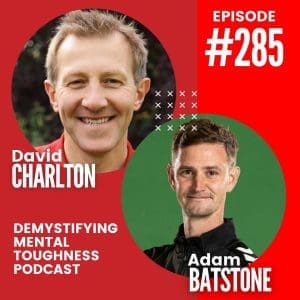
Youth Sports Psychology Tips: Does Your Child Worry Too Much About What Others Think?
Some children who play sport have a lot of hidden worries
Often when they train and compete in sport, parents, coaches and friends are unaware what is going on in a child’s mind. The reality is their beliefs and perceptions can have a huge impact on their performances, confidence and self-esteem.
After working with 1000s of youngsters, I’ve noted that a huge worry, especially from the age of 9 upwards are concerns over what other people think about how they perform. Children get overly concerned with what their friends, parents and coaches think and it often means they don’t express themselves fully, going on to:
- Play in fear
- Hide
- Freeze
- Get overly emotional
Especially if they make a mistake. These are fatal, and something I experienced as a child, which goes on to impact on how much they learn and enjoy their sport.
What’s the solution?
1 – Parents and coaches need to help them identify the problem.
Ask the child if they’re worried about what people think when they play? Find out, who specifically they worry about? Talk about what happens in these situations when they start to worry, find out what goes on in their world.
You’ll note that often children won’t talk about this to parents as they might be judged as weak. With coaches it may be even tougher, because they might worry about being selected or again being judged as weak or soft.
2 – Help the children focus on what they do at their best when they’re playing their sport.
Setting mini-goals to concentrate on. An example, is a young rugby player I’ve worked with recently who experienced this type of worry. He went on in training and in matches to rate himself for 2 aspects of his game, asking for the ball and his movement to create space. The rating system we used was 33(poor)/66(average)/99 (good). He found this was really useful and focused him, he also then realised how these areas weren’t necessarily a problem and that it was more about how fearful he became on the ball. So he then went on to set 2 different mini-goals, taking a opponents on and creative passing.
By doing this exercise, it really helps children to focus on their game and not their worries, and importantly it improves their performance and enjoyment massively.
3- Improve your child’s self-talk
Children who focus too much on other people can also put themselves down a lot, criticising themselves with a lot of negative self-talk and generalisations. Examples are, I won’t play well when the scout from Bath is watching me. Oh no, my dad is watching, what will he be shouting on the side, I’ll never play well.
Again a note for coaches and parents, help them replace these negatives with positive self-talk, like, I must be doing something right if the Bath scout is here, let’s show him how quick I am or I played well last week when dad was watching, so I can do it today.
If you enjoyed this article offering Sport Psychology advice for children and parents sign up to “The Mental Edge” for regular updates. Or take a read of another page I have set up which has advice for on Child and Youth Sport Psychology.
To get in touch for one 2 one Sports Psychology Coaching with a Leading Sport Psychologist, David Charlton, based near Durham click here – Face to face, via the telephone, SKYPE or online via email.

Best Wishes
David Charlton
Online Sports Psychologist and Mental Skills Performance Coach who supports children Sports Psychology Coaching all around the world from Wales to Wellington, New Zealand, using ONLINE Video Conferencing.
Managing Director – Inspiring Sporting Excellence, Host of Demystifying Mental Toughness Podcast and Founder of The Sports Psychology Hub. With over a decades’ experience supporting athletes, coaches, parents and teams to achieve their goals, faster.
T: +44 7734 697769







